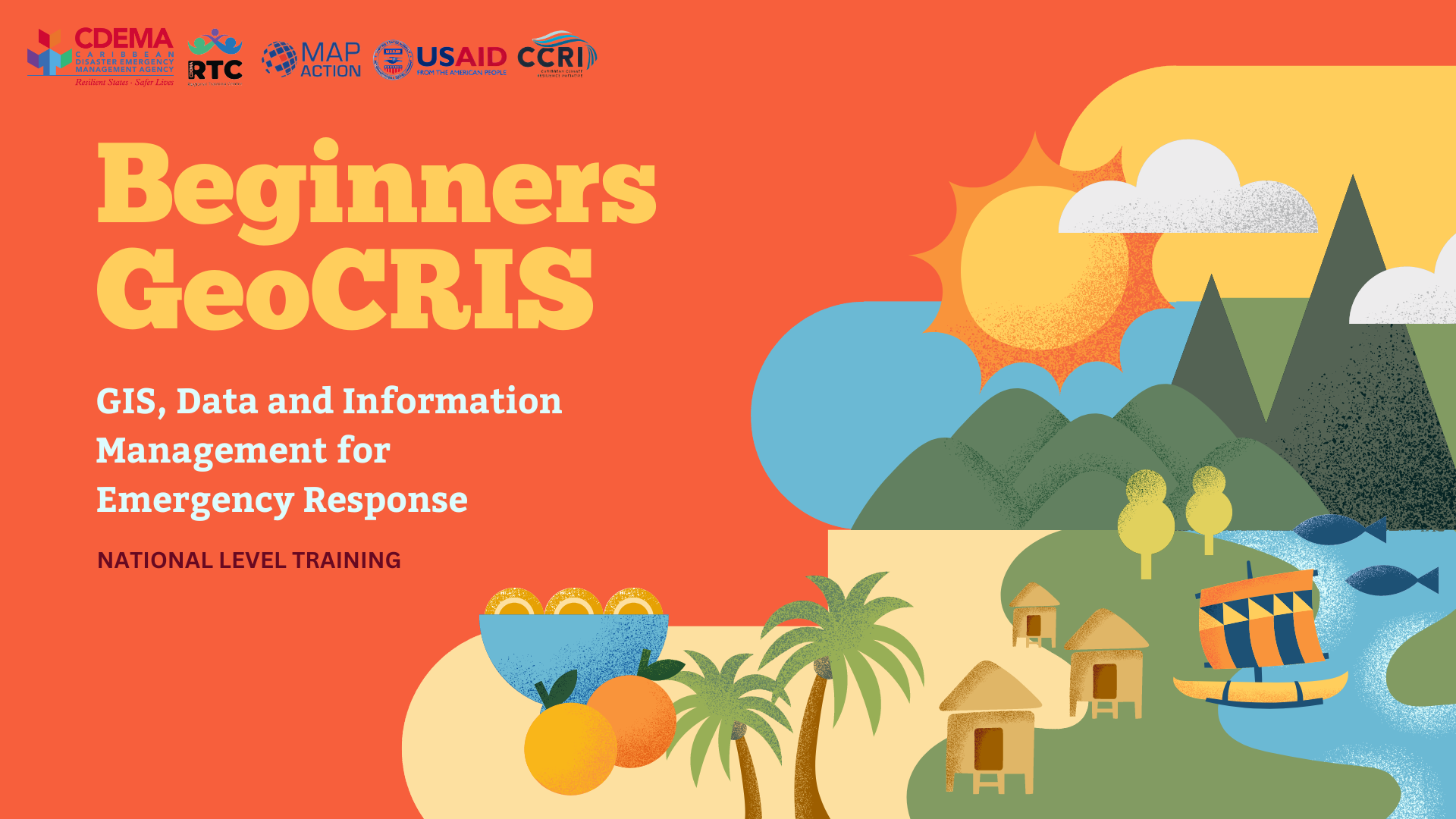
Available courses
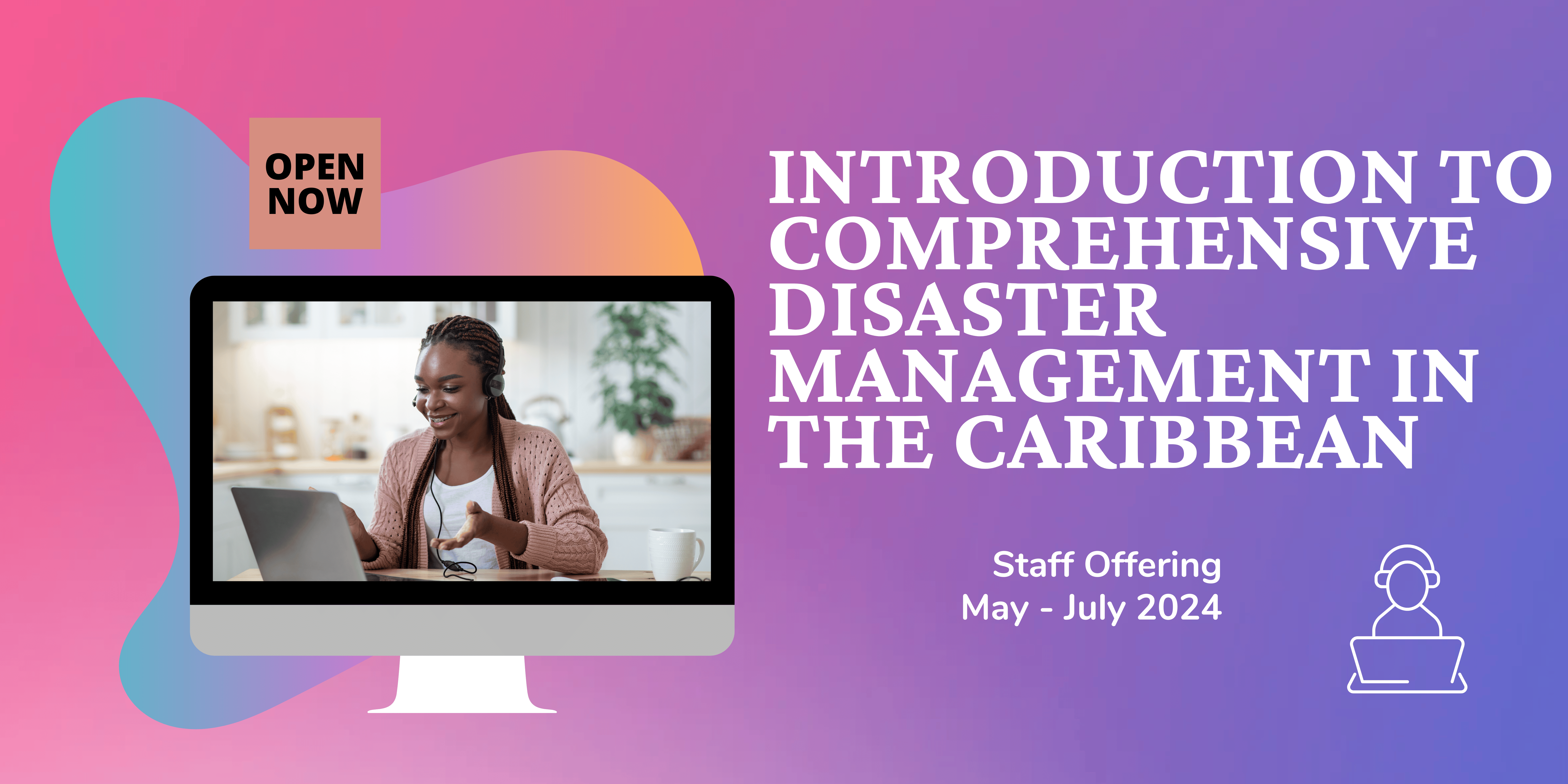
Introduction to Comprehensive Disaster Management (CDM) in the Caribbean v2
Introduces the basic concepts of disaster risk management (DRM) and provides an orientation to the CDEMA system. Students will have an opportunity to learn about DRM in the CDEMA Participating States in the Caribbean region which are primarily small island developing states (SIDS) and low lying coastal states (LLCS). This is a self-paced online course.
Useful for staff of National Disaster Management Offices (NDMOs) and of the wider National Disaster Organisations (NDO) in CDEMA Participating States.
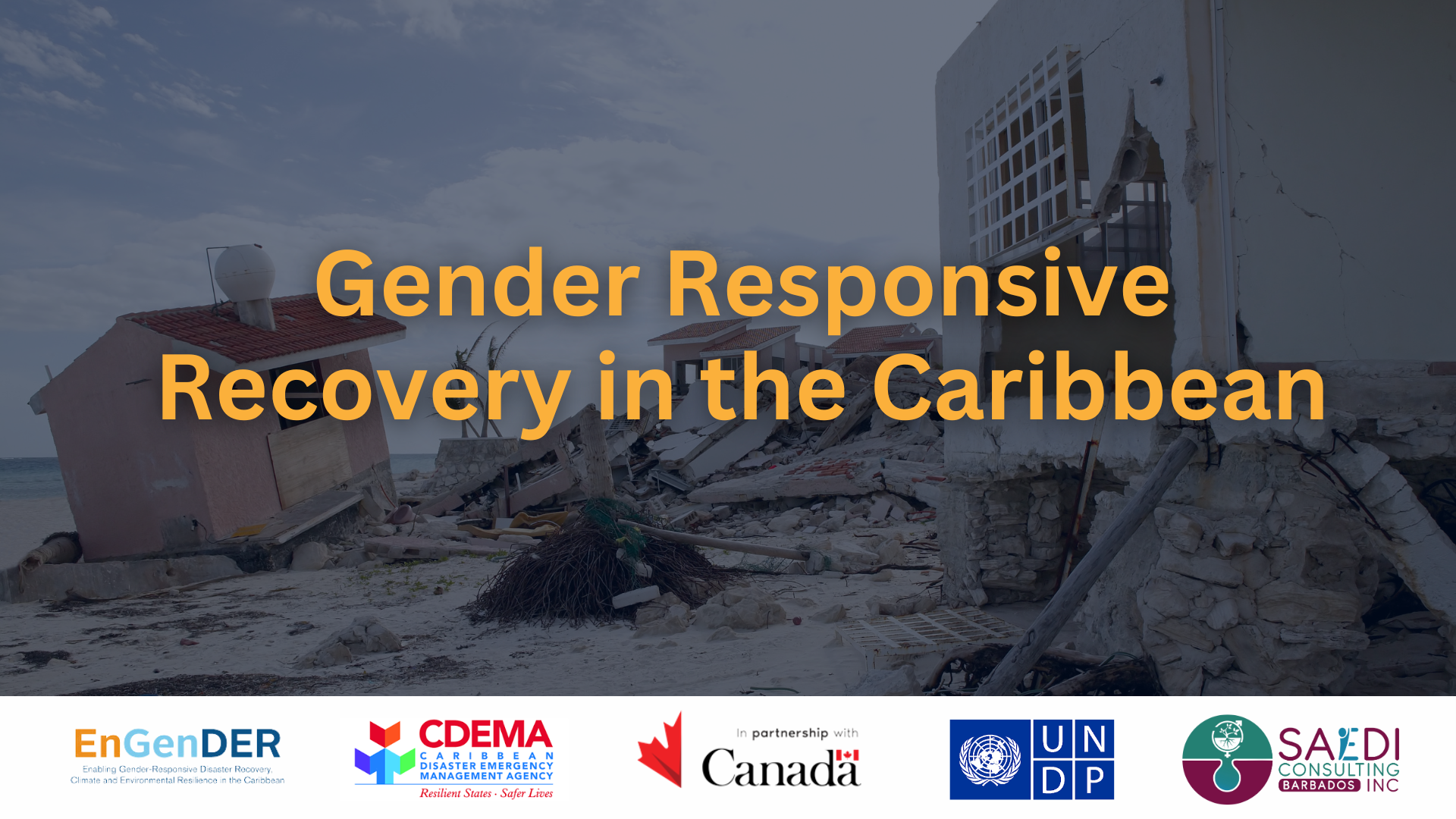
Gender-Responsive Recovery
Gender Responsive Recovery in the Caribbean
This course seeks to strengthen the capacity of disaster management practitioners and partners to integrate gender equality, women’s empowerment and social inclusion into recovery planning, operations and implementation in the Caribbean. The intended beneficiaries of this course are multiple and will form an eclectic mix in a best and future-fit for the adaptive context in which recovery of occurs. The group includes disaster managers, NGOs/CSOs, the private sector, day-to-day decision-makers as well as at-risk groups and their representatives and influencers/opinion-leaders. Finance and gender actors are also particularly targeted as participants for this course to also encourage thematic peer-to-peer learning. One of the key approaches to building total knowledge across the entire course will be spaced repetition of key concepts.
There are 5 Modules and 10 Lessons in this course.
This course has five (5) main learning objectives:
- Help participants i.e. practitioners enhance their understanding of why gender is relevant and key to disaster risk reduction as well as recovery;
- Capacitate users in identifying strategic and practical gender needs driven by vulnerability to disaster and climate risks;
- Aid participants to differentiate between types of social and gender risks arising in the context of disaster recovery and strategies to address them proactively and sustainably;
- Build capacity to efficiently and effectively map out pathways from response to recovery and from recovery to resilience minimizing bias and discrimination; and
- Strengthen skills to collaborate effectively across government agencies and with NGOs/CSOs in tackling the needs of marginalized, hyper-marginalized groups and at-risk populations.
Various learning strategies will be employed including concept mapping, lectures, knowledge checks, quizzes, didactic questioning, storytelling, case studies, reading for meaning, problem-solving, project-based/intervention learning and brainstorming. Materials will be presented in various formats including video clips, voice/audio clips, quotes from stakeholders and stories that ground and humanize the lived reality of the intended beneficiaries of recovery efforts.
The checklists developed as part of the same consultancy cover multiple topics including general gender mainstreaming, stakeholder engagement, vulnerable groups, gender-based violence and sexual exploitation, abuse and harassment. The Vulnerable group checklist has a general component and then specific checklists for key groups such as Persons with Disability, Indigenous and Tribal Peoples, Migrants and LGBTQIA+. These are used extensively to support uptake of the complex themes, concepts and good practice included in the course materials.
At the end of each module is an assessment of approximately 15 questions that provides a critical knowledge and learning check as well as connects materials across lessons and sets the foundation of upcoming modules and lessons.
We hope that you will enjoy this Gender journey via the modules and will see linkages to and with other trainings available under the Regional Training Center and beyond as well as with previous gender trainings you may have been part of.
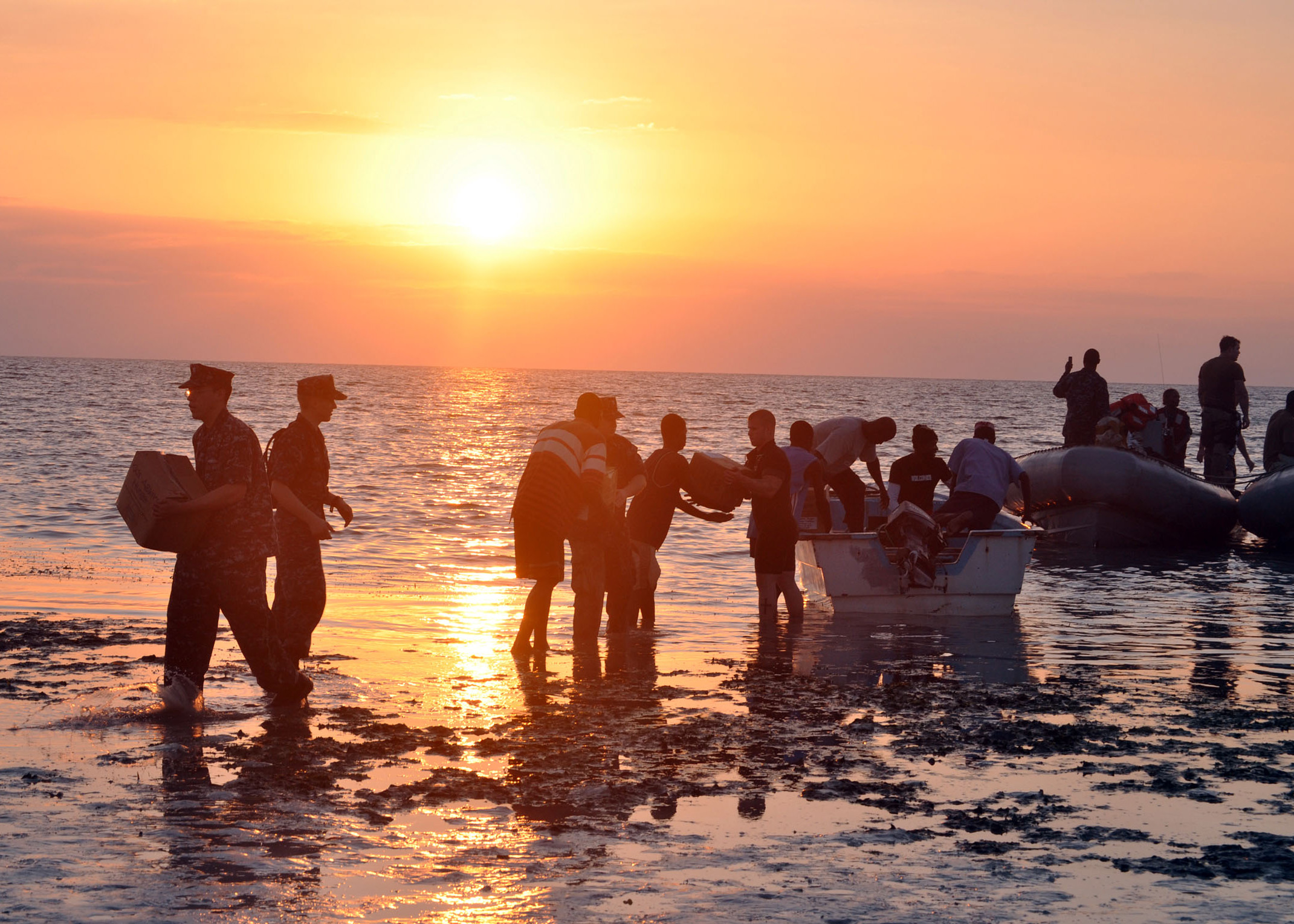
Gender Mainstreaming in Disaster Risk Management
Examines gender issues encountered in disaster risk management (DRM), and explains why it is important to mainstream gender into DRM. Suitable for staff of (i) National Disaster Management Offices (NDMO) and (ii) agencies in the larger National Disaster Organisation (NDO) of CDEMA Participating States. Anyone with an interest in learning more about gender and disaster risk management will also benefit.
Average Time to complete: 30 minutes
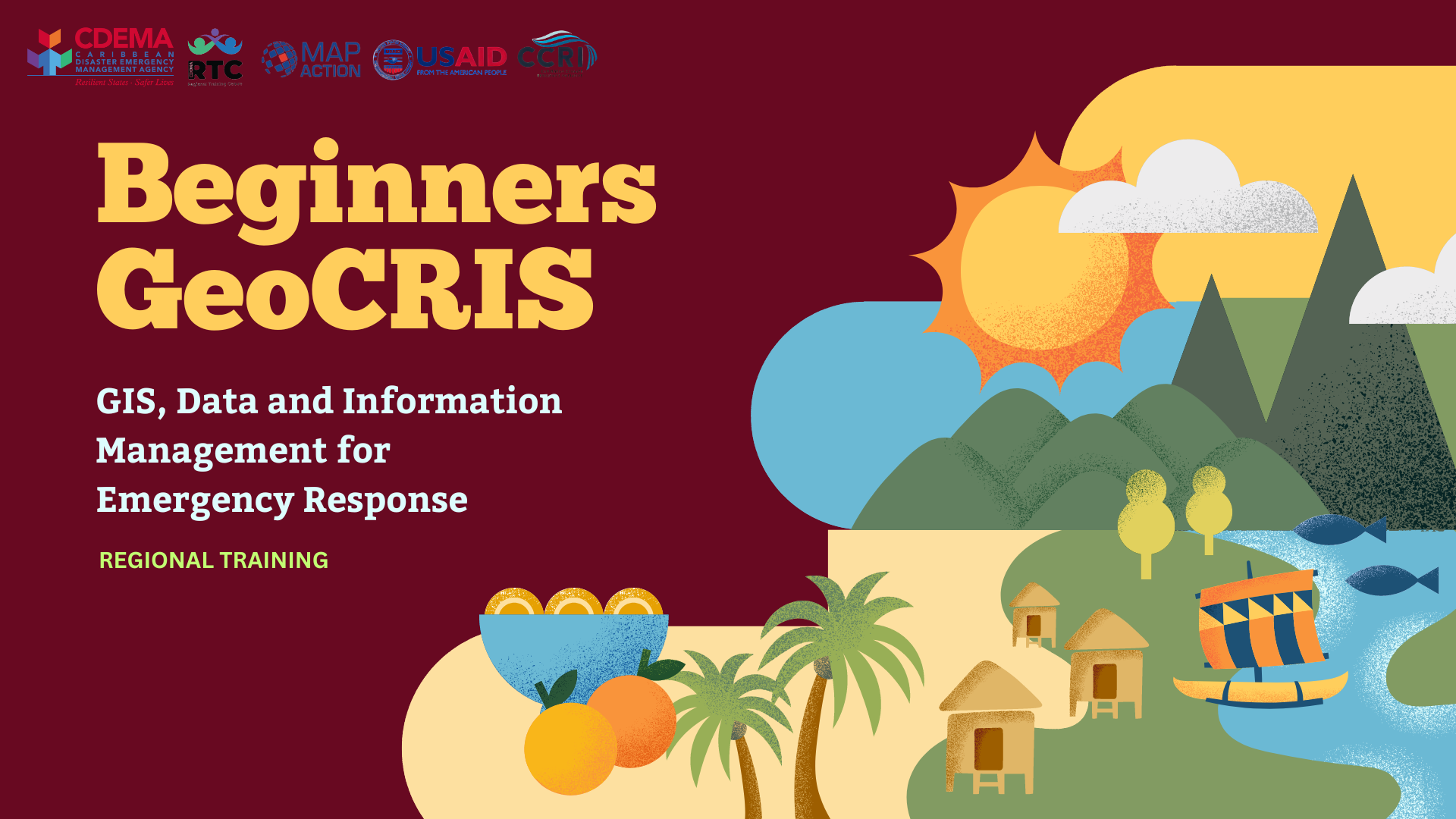
GeoCRIS Beginner Training
This course aims to introduce to you the geospatial platform of the Caribbean Risk Information System (CRIS) called the GeoCRIS. The course focuses on the geospatial datasets available within the GeoCRIS and how to use these geospatial datasets in the creation of mapping products to support disaster response activities in the Caribbean. The course is suitable for staff of the National Disaster Organizations (NDOs) of the CDEMA Participating States. The partners in the wider NDO network can also benefit greatly from this course.
This course is ideal as an orientation to geographical information systems (GIS) for disaster risk management (DRM) in the Caribbean region. If you are new to GIS and DRM in the region, this is a good place to start.
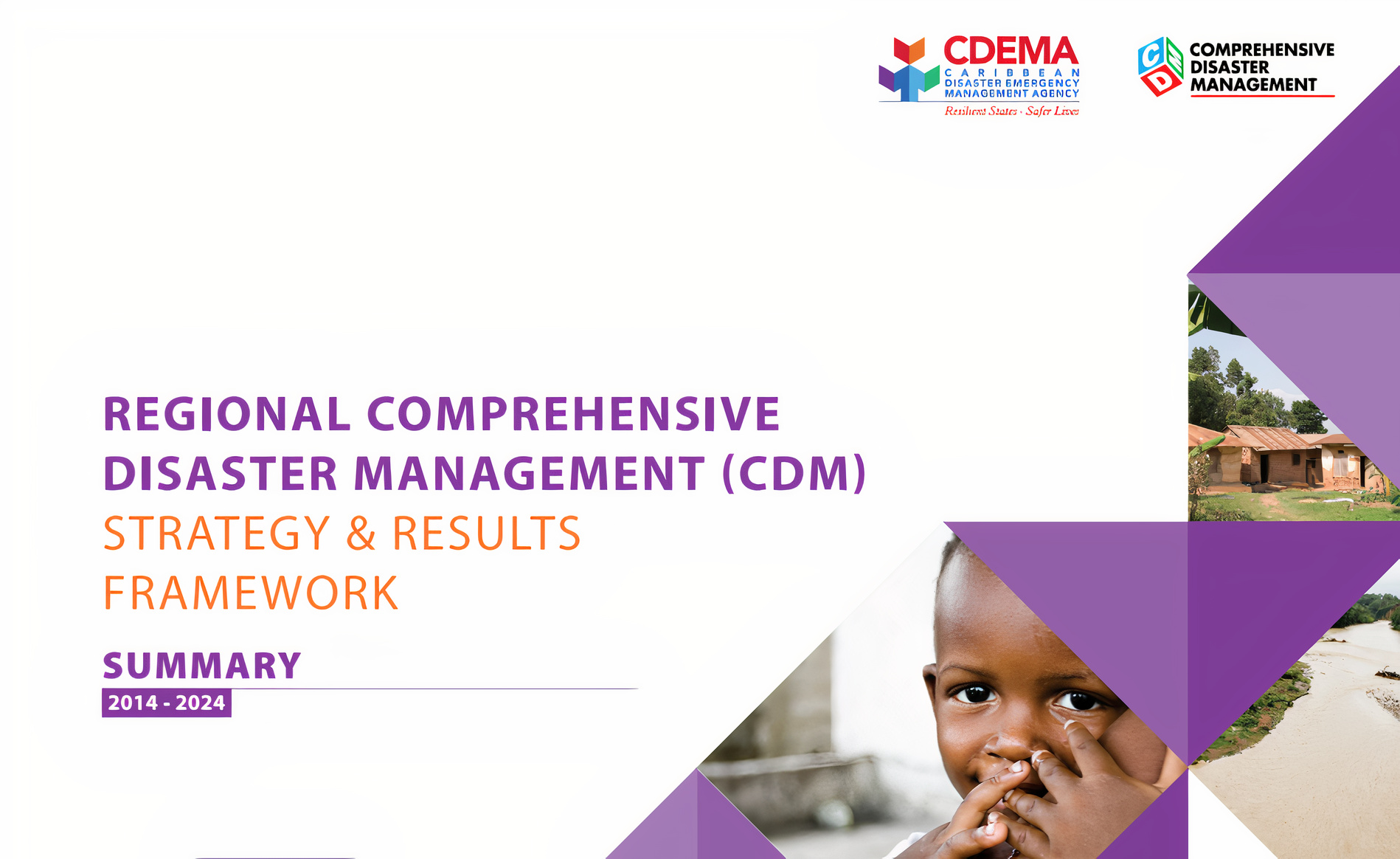
The Regional Comprehensive Disaster Management (CDM) Strategy 2014-2024 v1
Explains the Regional Comprehensive Disaster Management (CDM) Strategy and Results Framework 2014-2024. Learn about how Disaster Risk Management stakeholders in the Caribbean are strategically addressing disaster risk to create safer, more resilient societies.
Average time to complete: 30 minutes
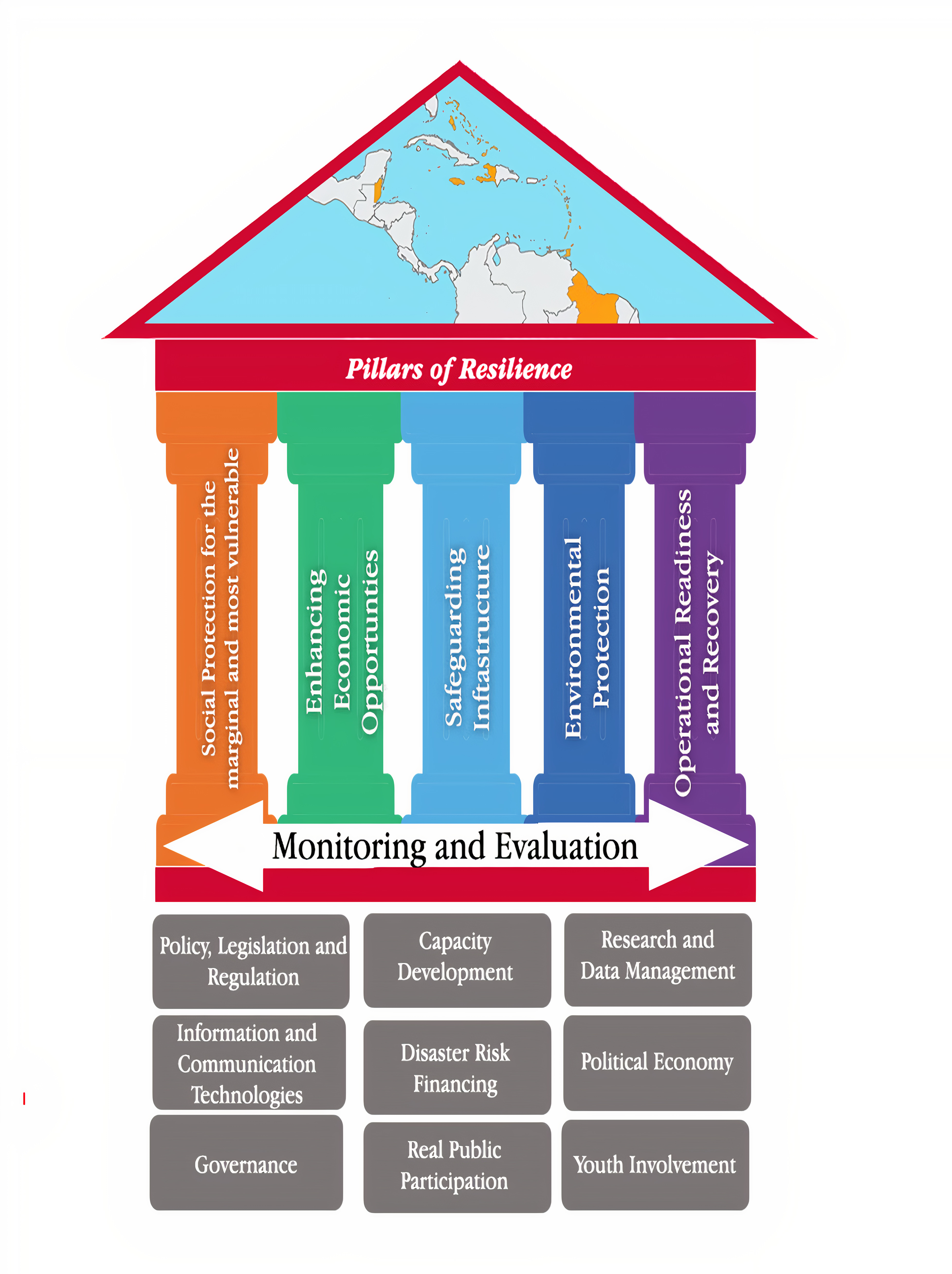
The CARICOM Pathway to Resilience
Explains the CARICOM Resilience Framework. Suitable for staff of (i) National Disaster Management Offices (NDMO) and (ii) agencies in the larger national Disaster Organisations (NDO) of CDEMA Participating States. Anyone with an interest in learning more about strategic approaches to building resilience will also benefit.
Average Time to Complete: 30 minutes
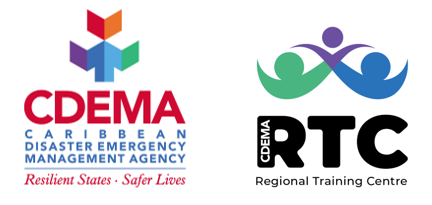
Guidelines for Integrating Violence Against Women & Girls/Family Violence (VAWG/FV) Considerations into Comprehensive Disaster Management (CDM) in the Caribbean
An introduction to key considerations for VAWG/FV in the context of Caribbean Disaster Risk Management, and to a tool designed to assist the regional disaster management community to integrated these considerations into programmes and projects. Use for anyone designing and implementing DRM programmes and projects in the CDEMA Participating States or other Caribbean territories. Also useful for anyone with an interest in learning more about the linkages between gender and disaster risk management
The development of this micro-course was supported by the UWI Disaster Risk Reduction Centre (DRRC), the CDEMA Regional Training Centre (RTC) and the United Nations Development Programme (UNDP) under the Spotlight Initiative Regional Programme in the Caribbean. The Spotlight Initiative is a global initiative of the United Nations which has received generous support from the European Union. Its aim is to eliminate all forms of violence against women and girls.
Average time to complete: 35 minutes
